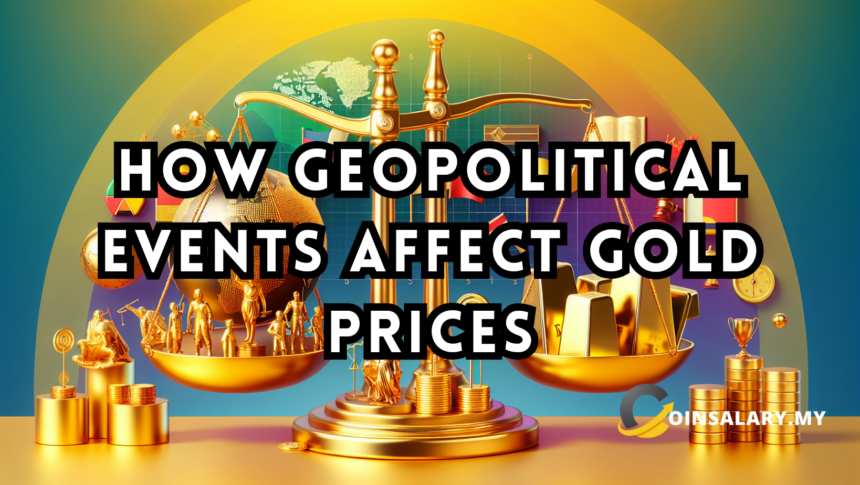Gold has long been considered a safe-haven asset, a form of insurance against economic and political instability. Geopolitical events can significantly influence gold prices, causing them to rise or fall based on global uncertainty. This article explores how geopolitical events affect gold prices and why understanding these dynamics is crucial for investors.
The Role of Gold as a Safe Haven
Gold is often seen as a safe haven because it tends to retain value during times of crisis. Investors flock to gold when there is uncertainty in the financial markets or geopolitical tensions, seeking to preserve their wealth. This behavior drives up the demand for gold, impacting its price.
Key Geopolitical Events Impacting Gold Prices
1. Wars and Conflicts
Wars and military conflicts create significant uncertainty and instability, leading investors to seek safer assets like gold. For example, during the Gulf War in the early 1990s and the Iraq War in the early 2000s, gold prices saw substantial increases as investors reacted to the geopolitical turmoil.
2. Political Instability and Regime Changes
Political instability, such as coups, elections, and regime changes, can also affect gold prices. For instance, during the Brexit referendum in 2016, gold prices surged as investors reacted to the uncertainty surrounding the UK’s decision to leave the European Union.
3. Economic Sanctions and Trade Wars
Economic sanctions and trade wars can disrupt global trade and economic stability, impacting gold prices. The trade tensions between the US and China in recent years led to fluctuations in gold prices as investors weighed the potential economic fallout from escalating tariffs and sanctions.
4. Terrorist Attacks
Terrorist attacks can create sudden and intense uncertainty, leading to spikes in gold prices. The attacks on September 11, 2001, in the United States caused a sharp rise in gold prices as investors sought safety amidst the chaos.
Mechanisms of Impact
1. Investor Behavior
During geopolitical events, investor sentiment plays a crucial role in driving gold prices. Fear and uncertainty prompt investors to move their money into gold, increasing demand and pushing up prices. Conversely, when geopolitical tensions ease, investors may move back into riskier assets, causing gold prices to fall.
2. Currency Fluctuations
Geopolitical events can lead to significant fluctuations in currency values. Since gold is priced in US dollars, any weakness in the dollar due to geopolitical concerns can make gold cheaper for foreign investors, boosting demand and prices. Conversely, a stronger dollar can have the opposite effect.
3. Central Bank Actions
Central banks may respond to geopolitical events by adjusting monetary policies, such as interest rate cuts or quantitative easing, to stabilize their economies. These actions can influence gold prices. For example, lower interest rates reduce the opportunity cost of holding non-yielding assets like gold, making it more attractive to investors.
Case Studies
1. The Ukraine Crisis (2014)
The annexation of Crimea by Russia in 2014 and the subsequent conflict in Eastern Ukraine created significant geopolitical tension. During this period, gold prices experienced upward pressure as investors sought safety amidst the uncertainty in Europe.
2. US-Iran Tensions (2020)
The escalation of tensions between the US and Iran in early 2020, particularly after the US airstrike that killed Iranian General Qassem Soleimani, led to a spike in gold prices. Investors reacted to the heightened risk of conflict in the Middle East by increasing their holdings in gold.
Conclusion
Geopolitical events have a profound impact on gold prices, often driving them higher during times of crisis and uncertainty. Understanding the relationship between geopolitical events and gold prices can help investors make informed decisions and protect their portfolios. By monitoring global events and their potential economic impacts, investors can better navigate the complexities of the gold market and take advantage of opportunities presented by geopolitical fluctuations.
Investing in gold requires not only an understanding of market fundamentals but also a keen awareness of the geopolitical landscape. Stay informed, stay prepared, and leverage the safe-haven nature of gold to safeguard your investments during turbulent times.




